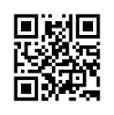SLANG’N IT UP – How do YOU talk at work? – by Nina Merkofer
Theory and Background Info
What’s up? Are you down to work? Are you ready to score that juicy deal?
Be a part of a LIVE SURVEY POLL and check out the LIVE RESULTS!
Almost everybody does it, and most of us do it daily: Using slang. Whether it is at home with our family, at the mall with our friends, or at work with our colleagues; knowing that someone understands our lingo just makes the convo flow so much easier.
Slang is an easy and comfortable means of communication which can heighten a certain in-group feeling and can make us feel heard and understood. Furthermore, slang words are often associated with pop culture and younger generational speakers. This does, of course, not exclude other language users from applying slang terminology into their speech. Yet it becomes clear that slang is not a stable element in a person’s speech repertoire but varies throughout generational differences, gender norms, cross-cultural significances, and much more. It is also highly dependent on the setting. So, when looking at contemporary slang, it should be taken into consideration that this is just a snippet of an ever-changing language resource.
But to understand what all the fuss is about, it is important to agree on what the term “slang” incorporates. The Merriam Webster Dictionary defines slang as follows:
Definition of slang:
- language peculiar to a particular group
- an informal nonstandard vocabulary composed typically of coinages, arbitrarily changed words, and extravagant, forced, or facetious figures of speech
(for more information see: https://www.merriam-webster.com/dictionary/slang)
In addition to the variance of slang use, the frequency of this use differs a lot depending on the individual as well as the situation. This is especially true for the workplace – a place often associated with no silly business. Thus, the highly informal slang appears to be at odds with professional workplace surroundings. Yet, this is not necessarily a given; depending on your place of work, slang usage can be seen as a positive attribute and can even be encouraged. The degree of acceptance may also vary depending on the language used for this type of conduct. English as a global lingua franca (i.e. THE language for international communication) is on the rise, and more and more words permeate culture barriers and find themselves in different cultural contexts. On the other hand, (Swiss) German bears heavy markers of identity and its slang forms may very well be regarded as a token of nationality, delimiting negative associations. Hence, the focus of this blog lays on whether workers perceive slang as appropriate “work talk”, whether they experience their place of work as “slang-friendly”, and whether they have a preference of using English or (Swiss) German slang terms at work.
To investigate these differences, this blog launches a LIVE SURVEY POLL – meaning that each and every one of you readers can be a part of the project! The live survey is very short and wishes to showcase what kind of slang words people use at work [i.e. English vs. (Swiss) German slang], and what their usage behavior is like. Thus, the poll simply asks you to (1) do a ranking of plurilingual slang words based on the likelihood of using them at your place of work, and to (2) do a ranking of how strongly you agree/disagree with using different kinds of slang words at work and in different contexts [i.e. with co-workers or with your boss/during your break or on the clock]. So, if you are reading this, I happily invite you to take part!
a part of the LIVE SURVEY:
SLANG’N IT UP – Live Survey Poll

Check out the LIVE RESULTS:
By Nina Merkofer